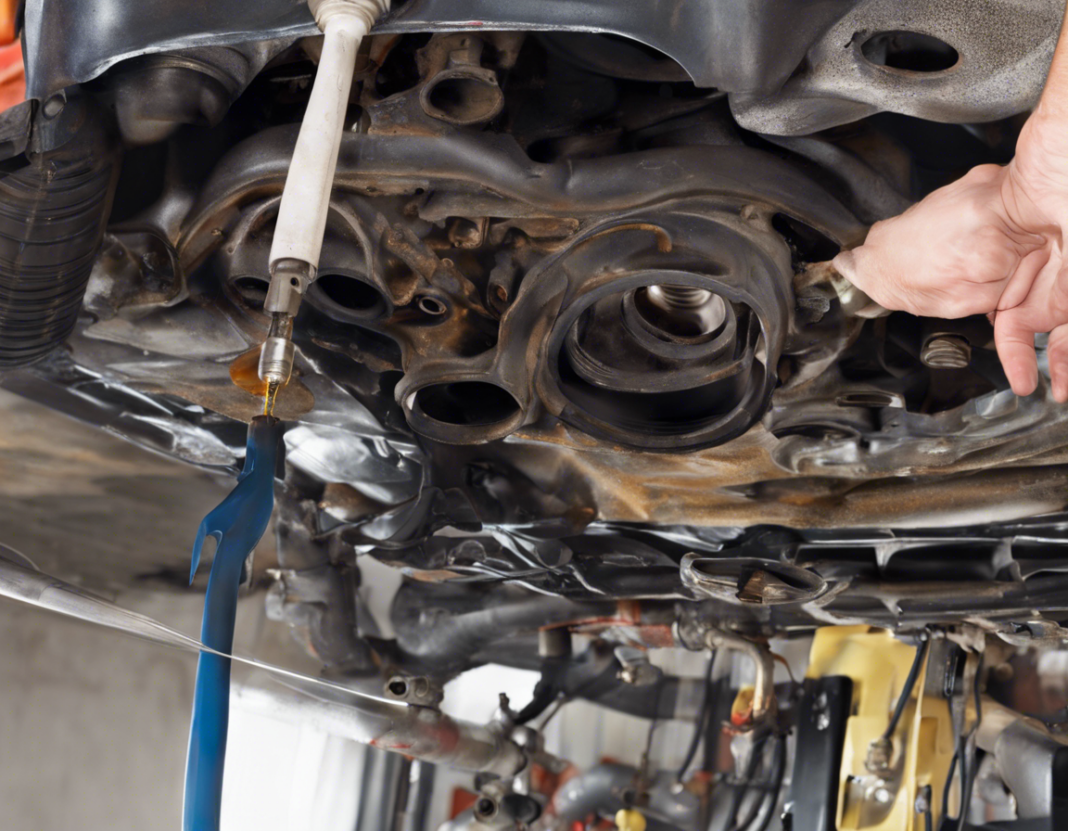An oil leak in your vehicle can be a significant concern, leading to potential damage if not addressed promptly. Finding reliable oil leak repair services near you is crucial to ensure the longevity and efficiency of your vehicle. In this comprehensive guide, we will explore the common causes of oil leaks, the importance of immediate repair, how to find a reputable repair service, and essential preventive measures to maintain your vehicle’s health.
Understanding Oil Leaks
What Causes Oil Leaks?
- Worn Gaskets or Seals: Over time, the gaskets and seals in your engine can degrade, leading to leaks.
- Loose or Damaged Oil Drain Plug: A loose or damaged drain plug can result in oil leaking from the oil pan.
- Cracked Oil Pan: Road debris or improper installation can cause the oil pan to crack.
- Faulty Oil Filter: If not sealed correctly, the oil filter can lead to oil leaks.
- Excessive Oil Pressure: High oil pressure can cause seals to fail and result in leaks.
Signs of an Oil Leak
- Visible Puddles Under Your Vehicle
- Burning Smell
- Low Oil Levels
- Engine Overheating
Importance of Immediate Repair
An oil leak left unattended can lead to a range of serious issues, including:
- Engine Damage: Insufficient lubrication can cause friction and damage to engine components.
- Safety Hazard: Oil leaks can create slippery road conditions, increasing the risk of accidents.
- Environmental Impact: Oil leaks pollute the environment and can result in hefty fines.
Finding Reliable Oil Leak Repair Services
When searching for oil leak repair services near you, consider the following factors:
Reputation
Look for repair shops with a proven track record of quality service and customer satisfaction.
Expertise
Choose a repair shop with certified technicians experienced in oil leak diagnosis and repair.
Warranty
Ensure that the repair shop offers a guarantee on their work to provide you with peace of mind.
Reviews
Check online reviews and ask for recommendations from friends or family to gauge the repair shop’s reputation.
Preventive Measures
To avoid costly repairs and vehicle damage, consider the following preventive measures:
- Regular Maintenance: Stay up to date with oil changes and regular vehicle inspections.
- Monitor Oil Levels: Check your oil levels regularly and address any drops promptly.
- Inspect for Leaks: Keep an eye out for signs of leaks under your vehicle and address them immediately.
- Drive Cautiously: Avoid road debris and potholes to prevent damage to your oil pan.
Frequently Asked Questions (FAQs)
1. How do I know if I have an oil leak?
If you notice puddles under your vehicle, a burning smell, low oil levels, or engine overheating, you may have an oil leak.
2. Can I drive with an oil leak?
It is not advisable to drive with an oil leak as it can lead to more significant issues, including engine damage and safety hazards.
3. How much does it cost to repair an oil leak?
The cost of repairing an oil leak can vary depending on the severity of the leak and the repairs needed. It is essential to get a diagnosis from a professional.
4. How long does it take to repair an oil leak?
The time required to repair an oil leak depends on the extent of the damage and the availability of parts. Simple repairs may take a few hours, while more complex issues may take longer.
5. Can I fix an oil leak myself?
While some minor leaks can be fixed with DIY solutions, it is recommended to have professional technicians inspect and repair oil leaks to ensure the integrity of your vehicle.
Finding reliable oil leak repair services near you is essential to maintain the health and performance of your vehicle. By understanding the causes of oil leaks, recognizing the signs, and taking preventive measures, you can ensure a smooth driving experience. Remember to prioritize prompt repairs and regular maintenance to keep your vehicle in top condition.

